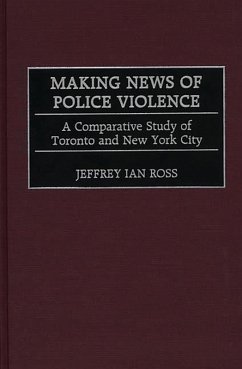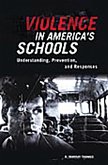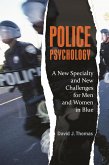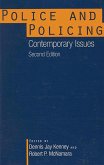Although many people consider excessive police violence disconcerting, if, when, and how they voice their opinion or respond by taking some sort of action has generally remained empirically unknown. In the hope of understanding this process, Ross has developed a four-stage model, based on a review of the literature and on interviews with the relevant actors. He then uses this tool to analyze police violence that occurred in Toronto, Canada and New York City, over a fifteen-year period. To better focus the study, he uses in-depth case studies of three well-publicized cases of police violence from each city, matched on important criteria. This study addresses a difficult, timely, and important topic for victims, for police personnel, and for society. Ross concludes that, in general, most individuals do not respond to police use of excessive force; further, if and when they do usually depends on the context of the violence. Using both quantitative and qualitative methods, Ross's model integrates a variety of approaches to improve our understanding of how communities come to define and control the use of force by police, including literature on the role of media efforts and their impact upon police violence. The work concludes with an analysis of the reasons why people react so infrequently to incidents of excessive force.
Bitte wählen Sie Ihr Anliegen aus.
Rechnungen
Retourenschein anfordern
Bestellstatus
Storno









